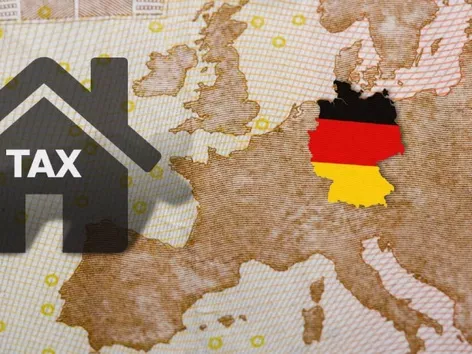Property tax reform in Germany: what will change for expats?

In January 2025, new rules for calculating and collecting real estate tax will come into force in Germany. Find out what will change for expats who have already bought a home in Germany, plan to do so, as well as for renters
The German government has been working for many years to modernize the rules of the country's taxation system. The next fiscal reform has already been completed, and in 2025 new tax rules will come into effect in Germany. And although many experts consider the changes proposed by the government to be chaotic, the consequences of the reform will soon be felt by many people.
The main changes for owners and tenants of real estate in Germany are discussed below.
Why did Germany introduce a tax reform for homeowners?
The German government has been working on optimizing the taxation system in the country for several years. The latest changes affected the real estate market. The main reason is that the real estate valuation system in Germany is outdated, because information on the basic value of real estate has not been updated for decades.
Because of aging data, most homeowners now pay tax at rates that bear little relation to current market value.
Another reform planned for the beginning of 2025 should correct this.
How will the property tax be calculated in Germany?
As part of the reform, every homeowner in Germany was forced to submit new declarations about the size and value of the property.
Also, the following three numbers will be used to calculate the amount of the tax:
- estimated real estate value;
- the basic rate of tax related to the type of asset (basic rates for residential real estate are generally between 0.26% and 0.35%; for commercial buildings and undeveloped land they are higher).
- municipal multiplier (German: Hebesatz) – municipalities in Germany can set it at their discretion.
For example, a residential property in Berlin worth €200,000 would be taxed at €4,210 based on a base rate of 0.26% and a current municipal multiplier of 810%.
To move, travel or work safely in a new country, you will need health insurance. You can apply for an extended policy on our website here.
Problems of implementing real estate tax in Germany
Implementation of the reform was complicated by confusion and delays. Many homeowners in the country say they still don't know how much they will have to pay, as authorities in Germany have not yet published the actual rates at which properties will be taxed.
As a result, most owners do not know the exact amount they will have to pay in 2025. According to experts' estimates, 90% of German households are not aware of the new rates.
The position of the federal government is not yet clear. It is unclear whether Berlin intends to change the rules for calculating the base rate. In addition, very few German municipalities have established the Hebesatz.
Each land personally sets the size of the Hebesatz: what will it be?
Currently, the amount of Hebesatz is known only in certain German states:
- Berlin – the German capital is reducing the current Hebesatz rate from 810% to 470%, i.e. almost twice. Given the explosive growth in real estate valuations that can be expected in the capital, Berliners will probably still have to pay more tax in 2025 than they do now. But the authorities' decision to lower the Hebesatz offsets some of the growth.
- Hamburg - the exact opposite decision was made here, the Hebesatz multiplier is planned to be increased from 540% to 975%.
- Bremen plans a smaller increase (from 695% to 755%) in 2025.
- The administration of Gladbeck in the federal state of North Rhine-Westphalia has decided to increase the ratio for German commercial real estate and lower it for housing.
How will tax reform affect renters?
Renters do not have to file a property tax return or pay taxes because they are not homeowners, but they will still have to pay more, as property tax will almost double for most owners, which will significantly affect the cost of renting.
Such landlords are likely to pass on most of the additional costs to tenants. Therefore, renters will end up paying more to live in Germany.
We will remind you! Foreigners working in Germany must submit a declaration every year to verify the amount of taxes paid. We have already told you the procedure for submitting a declaration and how expats can return overpaid taxes.
Ihor Usyk - head of Visit World's legal department
When working abroad, expats often have various legal issues, because the legislation of each country is special. Consulting a specialist will help you understand all the intricacies of labor law. A labor and business lawyer is your reliable assistant in solving simple and complex issues in any corner of the world.
Products from Visit World for a comfortable trip:
Checklist for obtaining a visa and necessary documents in Germany;
Legal advice on business issues in Germany;
Travel insurance for foreigners in Germany;
Medical insurance around the world.
We monitor the accuracy and relevance of our information, so if you notice any errors or inconsistencies, please contact our hotline.
Frequantly
asked questions
How is real estate taxed in Germany?
Is there a property tax in Germany?
Is it worth buying a house in Germany?
Recommended articles
3 min
Expats
Do you want to live in Germany and work for yourself? It's easy! The country offers a German freelancer visa, which is equivalent to a temporary residence permit. Find out more about the benefits and procedure for obtaining a freelance visa in Germany
06 Aug. 2024
More details3 min
Expats
Tax refund in Europe: when and how to get money for a foreigner?
Expats living in one of the EU countries have the right to compensation for overpaid tax. You can find out the amount of payments after submitting the annual income declaration. Find out what a tax refund is and which foreigners working in Europe are entitled to a tax refund
28 Sep. 2024
More details2 min
Expats
Taxes in Italy for foreigners: how much should self-employed and freelancers be paid in 2024?
Italy has favorable tax options for freelancers and self-employed individuals. Many expats can count on a simplified taxation system when moving to the country. However, the state has approved certain rules and restrictions that must be followed. Find out what are the features of the taxation system in Italy for foreigners
21 Oct. 2024
More details2 min
Work
Cost of living in Germany: expenses for housing rent, food, transport and monthly budget
Germany is one of the key countries of the European Union, which can guarantee a high standard of living not only for its citizens, but also for expats and migrants. Germany is chosen for temporary or permanent relocation, because it has a strong economy, developed infrastructure, rich culture and stability. Find out how much it costs to live in Germany in 2024-2025
05 Nov. 2024
More detailsAll materials and articles are owned by VisitWorld.Today and are protected by international intellectual property regulations. When using materials, approval from VisitWorld.Today is required.
